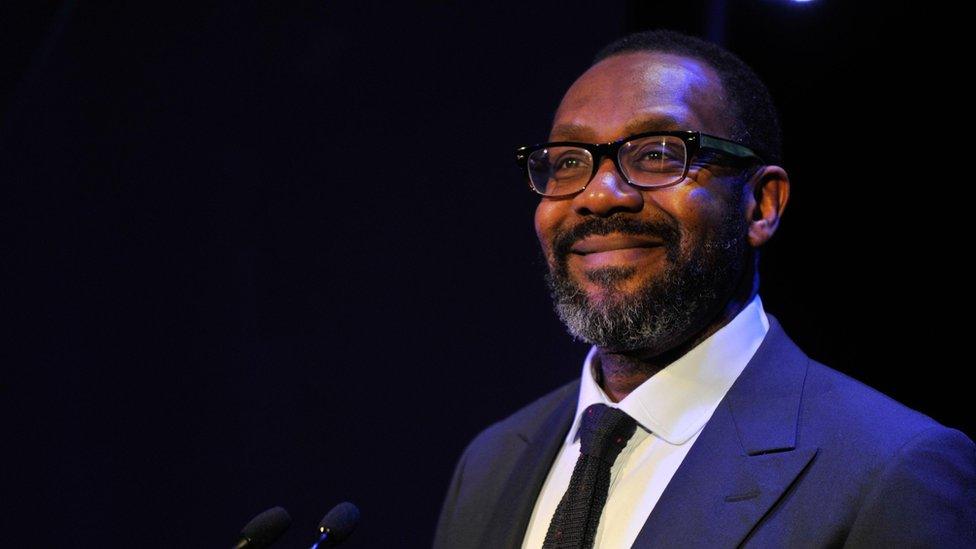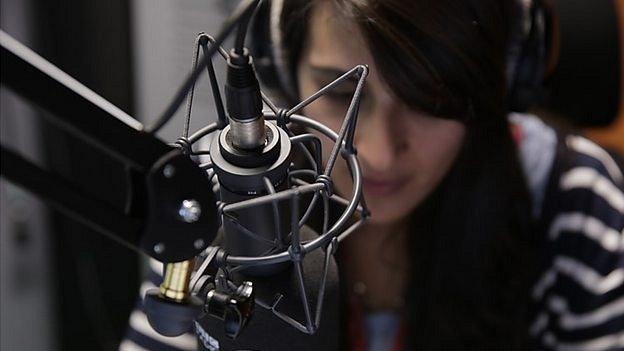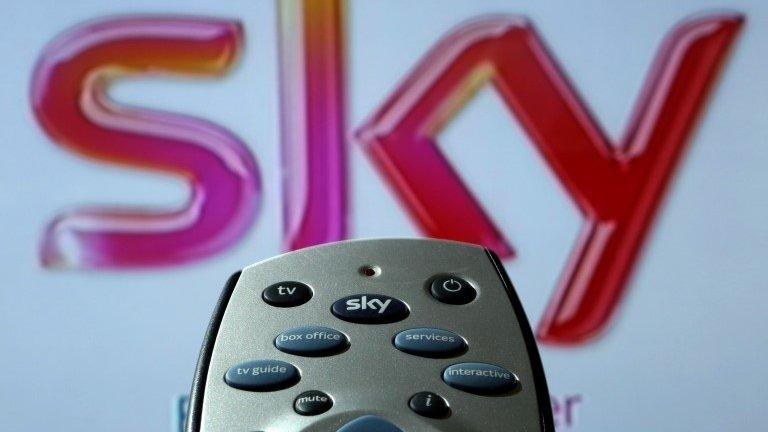UK TV directors 'lack diversity' says 'shocking' report
- Published

Lenny Henry has been honoured for his work championing diversity in the broadcast industry.
A "shocking" report has revealed only 1.5% of UK television is made by directors of Black, Asian and Minority Ethnic (BAME) origin.
The Directors UK report, external, which looked at 55,000 episodes across 546 shows in 2013, found that BAME directors were "critically under-represented".
Diversity Chair Menhaj Huda said the report showed working in television "is inaccessible for far too many".
"There is a failure to provide any kind of support for BAME talent," he added.
Directors UK represents more than 6,000 British screen directors. The group campaigns for the rights, working conditions and status of directors in the industry.
Statistics show BAME directors make up 3.5% of the directing community, despite 14% of the UK population coming from BAME backgrounds.
The report - Adjusting the Colour Balance - focused on the number of BAME directors employed in the five key genres of UK television: factual, drama, children's, comedy and multi-camera/entertainment.
'Equal opportunities'
Research was based on a large sample of the most popular and significant programmes made in-house at the BBC and ITV, and by the top nine independent production companies.
Statistics revealed that just 0.18% among the most popular comedy shows broadcast in 2013 were made by BAME directors - where 99.82% of directors were white. The highest figure was in factual, where just 2.46% of programmes were made by BAME directors.
Further analysis at sub-genre level found there were areas such as period drama and game shows where there was no evidence of BAME directors being employed.
"Everyone, at every level across all genres, has a significant role to play to ensure that all directors have equal opportunities," said Andrew Chowns, CEO of Directors UK.
"Our report reaffirms the need for broadcasters, as industry leaders, to work together with us and the wider industry to create new opportunities for progression and change."
Predominantly white
Many BAME directors reported that, in comparison to their white peers, their careers often took significantly longer to progress and that access to employment opportunities were far more limited .
Directors UK carried out a number of in-depth interviews with BAME members of the industry to better understand what lies behind the issues and how to tackle them.
The feedback suggested there was a widely-held perception that television production in Britain was a predominantly white industry.
A high proportion of BAME directors interviewed were given their first break into television through the publicly-funded broadcasters BBC and Channel 4.
"We are talking about British directors from BAME backgrounds whose experiences growing up in this country offer a different take on story-telling, a different perspective, but a voice that is valid which is effectively being shut out," said Menhaj Huda.
"It's great that the industry is talking about the issue of diversity but discussion does not equal action."
- Published3 February 2015

- Published19 January 2015

- Published18 August 2014

- Published20 June 2014

- Published18 March 2014
